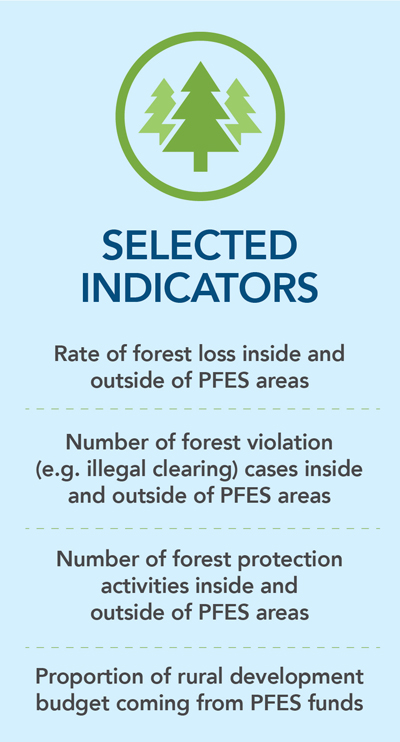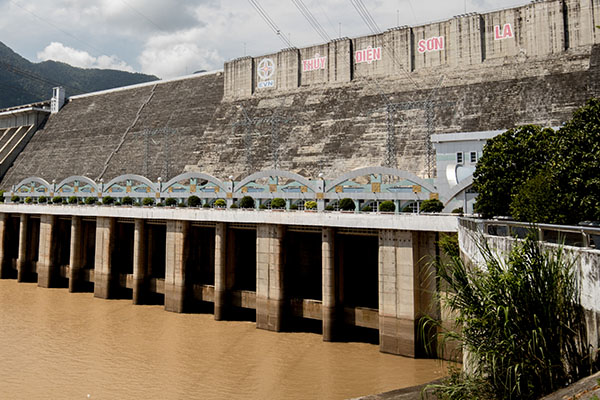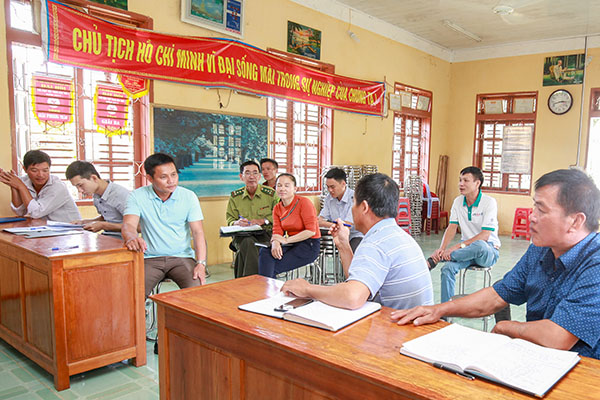
Helping Vietnam Track its PFES Impacts
The Vietnam Forests and Deltas program has new tools that make data easier to handle
By Lauren Keller, Program Officer and MEL Specialist, Forestry and Natural Resource Management
 Since 2012, the USAID Vietnam Forests and Deltas program (VFD) has been helping the Government of Vietnam develop and operationalize a national Payment for Forest Environmental Services (PFES) program that has already directed over USD $500 million to forest owners as financial compensation for maintaining forest cover. For example, Vietnam’s hydroelectric power plants now reward upstream forest owners whose trees keep soil in place, avoiding the sediment buildup that drives up operating costs.
Since 2012, the USAID Vietnam Forests and Deltas program (VFD) has been helping the Government of Vietnam develop and operationalize a national Payment for Forest Environmental Services (PFES) program that has already directed over USD $500 million to forest owners as financial compensation for maintaining forest cover. For example, Vietnam’s hydroelectric power plants now reward upstream forest owners whose trees keep soil in place, avoiding the sediment buildup that drives up operating costs.

One focus of Winrock’s work is creating monitoring systems and procedures that capture the impact of the PFES program. While monitoring systems may not sound glamorous, they are crucial to answering an essential question — does PFES work? Recent studies indicate that payment for ecosystem services schemes do reduce deforestation. However, these studies are limited in scope. With PFES implemented throughout its 44 provinces, Vietnam has an incredible opportunity to understand if PFES is effective.

The challenge? Figuring out what data will help answer the question, and how to collect it. Currently, the Vietnam Forest Protection and Development Fund (VNFF) only collects three data points — the number of households receiving PFES payments, the dollar value of total payments made and how many hectares of forest PFES includes. While these are important from a process perspective, they give no information about PFES outcomes. The Vietnamese government believes that PFES payments both reduce deforestation and have a positive socioeconomic impact on households. To assess if that is true, VFD is working in three provinces — Son La, Thanh Hoa and Lam Dong — to articulate what PFES is trying to achieve, how to measure it, and how to track all the information. The result is a comprehensive list of expected results and indicators to help VNFF better understand its progress.

The process has been steady — initially, staff from VNFF and provincial forest funds were nervous that monitoring would be used in a punitive way. Winrock worked with staff to help them understand the benefits of a strong monitoring system and eventually turned anxiety into support from forest fund staff. After training, each participating province worked independently to identify what PFES is trying to achieve and indicators to measure it. Now, Winrock is addressing the next challenge — data accuracy — by creating automated tools to help provincial staff review, process and update large datasets.
These tools are making an enormous difference in the ability of provincial staff to handle complicated data. Ha Minh Tam, the vice director of the Thanh Hoa Forest Protection Department, told VFD “…It took a half day for one of my staff to prepare data for one village, our province has 300 villages, so it would take us 150 man-days to complete the task. Now with the new tools, it only takes a half day to prepare data for whole province.”
In fact, one staff member, Ngo Thi Trung Thanh from the Moc Chau district Forest Protection Department in Son La province, told VFD staff that she was so overwhelmed by the idea of processing all the data that she cried. “I thought it was impossible to complete huge data preparation in one month, much less one week. I was ready to tell my boss that I quit. So when I got your tool, I cried. It is amazing, it only took me few hours to complete everything.”
The next step? Using geographic information systems (GIS) technology to ensure that the forest maps demarcating forest areas are accurate. With Winrock’s assistance, VNFF and the provincial forest funds can look forward to a more rigorous system that demonstrates how PFES can contribute to improved forest conservation in Vietnam.
Related Projects

